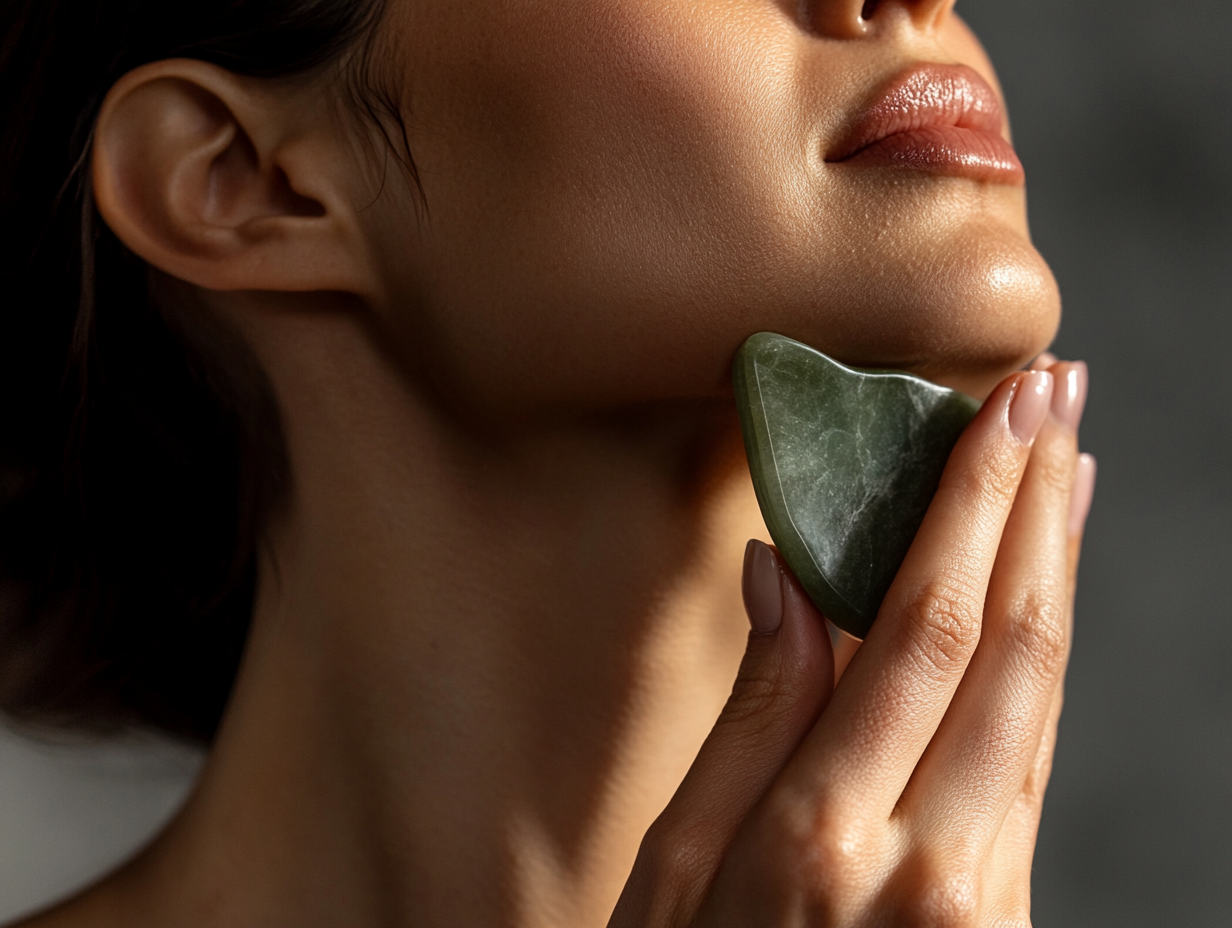We’ve all been there - captivated by the promise of a luxurious skincare product, its alluring scent promising a sensory escape. But have you ever stopped to wonder if that delightful fragrance is doing more harm than good? Let's dive into the world of fragrance in skincare and uncover some surprising truths.
The allure of fragrance in skincare is undeniable. It evokes emotions, creates memories, and can elevate a product's perceived value. But beneath that fragrant surface lies a complex story that involves a cocktail of chemicals. The term "fragrance" is a deceptive blanket term hiding a multitude of ingredients, many of which are potentially harmful.
It's time to peel back the layers and expose the truth about fragrance.
Want to receive a bite sized email every Sunday from STUNN’s founder, Ash, diving into a contentious beauty and wellness trend? Subscribe to hear her thoughts on fragrance in skincare, and much more!
Fragrance: A Hidden Health Hazard
Beneath the alluring scent of many skincare products lies a complex blend of chemicals, often undisclosed to consumers. This lack of transparency masks potential risks to your skin and overall health.
Skin Irritation and Allergies:
Beyond the obvious redness and itching, fragrance can trigger a cascade of skin problems. It can disrupt your skin's natural barrier, leaving it vulnerable to external irritants and infections. Chronic exposure can lead to conditions like eczema and dermatitis, significantly impacting your quality of life.
Respiratory Issues:
Fragrance can be a silent enemy for your lungs as well. The tiny particles released into the air can irritate the delicate lining of your respiratory system, triggering symptoms like coughing, wheezing, and shortness of breath. For individuals with asthma or allergies, fragrance exposure can be a significant trigger, leading to severe attacks.
Hormonal Disruption:
One of the most concerning aspects of fragrance is its potential to disrupt your endocrine system. Certain chemicals found in fragrances have been linked to hormone imbalances, which can have far-reaching consequences. These imbalances can contribute to reproductive issues, thyroid disorders, and even increased risk of certain cancers.
Neurological Symptoms:
Fragrance can also affect your nervous system. Headaches, migraines, and dizziness are common complaints among those sensitive to fragrance. The volatile organic compounds (VOCs) released by fragrances can overwhelm your senses, leading to these debilitating symptoms.
Multiple Chemical Sensitivity (MCS):
For some individuals, the impact of fragrance is even more severe. Multiple Chemical Sensitivity (MCS) is a condition where people develop adverse reactions to low levels of exposure to various chemicals, including those found in fragrances. Symptoms can range from mild to debilitating and significantly impact daily life.
It's crucial to recognize that these are not isolated incidents but rather widespread concerns. By understanding the potential health risks associated with fragrance, you can make informed decisions to protect yourself and your loved ones.
Let's delve deeper into the deceptive world of fragrance labeling.
Fragrance and Your Overall Health
The impact of fragrance extends far beyond your skin. It can infiltrate your overall well-being, contributing to a range of health issues such as the neurological issues like headaches and dizziness, as well as the respiratory complications we mentioned, but the issues don’t end there.
Disrupted Sleep:
Fragrance can interfere with your sleep quality. Even low levels of fragrance exposure can disrupt your sleep patterns, leading to insomnia, restlessness, and daytime fatigue. A good night's sleep is crucial for overall health and well-being, and fragrance can be a silent saboteur.
Cognitive Function:
Some studies suggest a link between fragrance exposure and cognitive impairment. The chemicals in fragrances can potentially affect brain function, leading to difficulties with concentration, memory, and decision-making.
It's essential to prioritize your overall health by minimizing exposure to fragrance. By creating a fragrance-free environment, you can significantly improve your quality of life and reduce the risk of these health issues.
Let's delve deeper into the deceptive world of fragrance labeling.
Decoding Fragrance Labels: A Consumer's Nightmare
Navigating the world of skincare labels can feel like deciphering a foreign language. Nowhere is this more evident than when it comes to fragrance. The term itself is a shroud of mystery, concealing a complex blend of chemicals that can range from harmless to downright harmful.
When you see "fragrance" or "parfum" on a product label, you're essentially being presented with a black box. Manufacturers are under no obligation to disclose the specific ingredients within that alluring scent, due to the fact that fragrance is considered a trade secret. This lack of transparency leaves consumers in the dark, unable to make informed decisions about what they're putting on their skin.
To add to the confusion, terms like "natural fragrance" or "essential oils" can be misleading. While some essential oils do have skincare benefits, others like tea tree oil and helichrysum can also be irritants for sensitive skin or problematic for pregnant women. Moreover, these products might still contain synthetic fragrance components to enhance the scent.
The Fragrance Industry's Shady Practices
The fragrance industry is a multi-billion dollar behemoth built on secrecy and a disregard for consumer safety. It's a disturbing reality, but one we need to address.
The industry has successfully lobbied to keep ingredient lists confidential, shielding themselves from scrutiny and accountability. This lack of regulation creates a perfect storm for potential harm.
It's a game of Russian roulette for consumers. You're essentially gambling with your health every time you apply a fragrant product. There's no way to know for sure what chemicals are lurking within that alluring scent, and what long-term effects they might have on your body.
It's time to demand better from the industry. We deserve transparency, safety, and the freedom to choose what we put on our skin without fear of hidden consequences.
Let's shift our focus to empowering ourselves as consumers.
Choosing Synthetic Fragrance-Free Skincare: Reclaim Your Skin's Natural Beauty
Now that you're armed with knowledge about the potential dangers of fragrance, it's time to take control of your skincare routine. Embracing synthetic fragrance-free products is a powerful step towards reclaiming your skin's natural beauty and health.
Let's dispel a common myth: synthetic fragrance-free doesn't equate to boring or ineffective. In fact, many high-quality skincare brands are focusing on creating potent formulas that deliver results without relying on artificial scents. By choosing synthetic fragrance-free, you're prioritizing the integrity of your skin's ecosystem.
Transitioning to a synthetic fragrance-free routine might seem daunting, but it's simpler than you think. Start by gradually replacing your scented products with fragrance-free alternatives. Pay close attention to your skin's response. You might be surprised to discover that your skin is calmer, clearer, and more radiant without the added burden of fragrance.
Reading Skincare Labels Like a Pro
Navigating the labyrinth of skincare labels can be overwhelming, but armed with the right knowledge, you can become a label-reading pro. Let's demystify the process.
The ingredient list is your roadmap to understanding a product. Ingredients are listed in descending order of concentration, so the first few items make up the bulk of the formula. Look out for those pesky fragrance or parfum terms lurking anywhere on the label. If you spot them, it's a red flag.
Beyond fragrance, keep an eye out for other potential irritants like artificial colors, parabens, and sulfates. These ingredients can contribute to skin sensitivity and inflammation. Instead, focus on products rich in natural, skin-loving ingredients like hyaluronic acid, vitamin C, and antioxidants.
Remember, not all natural ingredients are created equal. Some essential oils, like tea tree oil, bergamot, hyssop, sage, pennyroyal, and basil, while naturally derived, can still be irritating.
Your Skin Will Thank You: The Benefits of Fragrance-Free Skincare
Embracing fragrance-free skincare is an investment in your skin's long-term health and happiness. By eliminating potential toxins and irritants, you're creating an optimal environment for your skin to thrive.
One of the most significant benefits of synthetic fragrance-free skincare is the reduction in skin irritation and inflammation. Fragrance is a common culprit behind redness, itching, and dryness. By saying goodbye to scented products, you're giving your skin a much-needed break.
Moreover, fragrance-free skincare can help to prevent premature aging. Chronic inflammation, often triggered by irritants like fragrance, can accelerate the breakdown of collagen and elastin, leading to fine lines and wrinkles. Protecting your skin from these irritants is crucial for maintaining a youthful appearance.
STUNN Beauty: Your Partner in Pure Skincare
At STUNN Beauty, we believe in the power of clean, effective skincare. That's why our products are completely synthetic fragrance-free. We never use synthetic fragrances or the vague term "parfum" on our labels. While we do incorporate a small percentage of carefully selected essential oils in some of our products, these are added primarily for their skin-benefiting properties, not for scent. We adhere to strict guidelines, ensuring that these oils are used well below EWG-specified safe levels. Our commitment to transparency means you'll always know exactly what's in your skincare.
By choosing STUNN Beauty, you're not just selecting a product; you're investing in your skin's long-term health. Our synthetic fragrance-free formulas are designed to nourish and protect your skin without any unnecessary additives. Experience the difference of truly pure skincare.
Imagine waking up to a calm, hydrated complexion, free from the redness and irritation caused by fragrance. That's the power of STUNN’s skincare.
Reclaim Your Skin's Natural Beauty
It's time to reclaim your skin's natural beauty. By understanding the hidden dangers of fragrance and making informed choices, you're taking a proactive step towards optimal skin health.
Synthetic fragrance-free skincare isn't just a trend; it's a conscious decision to prioritize your well-being. By eliminating potential irritants and focusing on potent, natural ingredients, you're empowering your skin to thrive.
Remember, your skin is your largest organ. It deserves the best care possible. Let's break free from the allure of fragrance and embrace the purity of synthetic fragrance-free skincare. Your skin will thank you for it.
Are you ready to embark on a fragrance-free skincare journey? Discover the STUNN Beauty difference by exploring our range of pure, effective products. Share your experiences and questions in the comments below. Let's create a supportive community dedicated to healthy, radiant skin.
FAQ
Is fragrance bad for your skin?
While fragrance can be enjoyable, it's often a mix of chemicals that can irritate skin, trigger allergies, and contribute to long-term skin issues. Fragrance-free skincare is generally a safer option for most skin types.
What are the health risks of fragrance?
Fragrance exposure has been linked to various health concerns, including skin irritation, respiratory issues, hormonal disruptions, headaches, and migraines.
What does "fragrance" mean on a skincare label?
The term "fragrance" is a catch-all term for a mixture of potentially harmful chemicals. Manufacturers aren't required to disclose specific ingredients, making it difficult to know what's in your products.
Is natural fragrance better than synthetic fragrance?
While natural fragrances might seem safer, they can still cause skin irritation. It's essential to check for specific ingredients, as even natural oils, like essential oils, including tea tree oil, bergamot, hyssop, sage, pennyroyal, and basil, while naturally derived, can still be problematic for sensitive skin.
How can I find fragrance-free skincare products?
Look for products explicitly labeled "fragrance-free” and always read ingredient labels fully and keep an eye out for “fragrance” or “parfum”. Avoid terms like "unscented" as they might contain masking fragrances. Consider brands like STUNN Beauty that prioritize transparency and clean ingredients.
What are the benefits of synthetic fragrance-free skincare?
Synthetic fragrance-free skincare reduces the risk of irritation, allergies, and long-term skin damage. It allows your skin to breathe and function optimally, promoting a healthier complexion.




